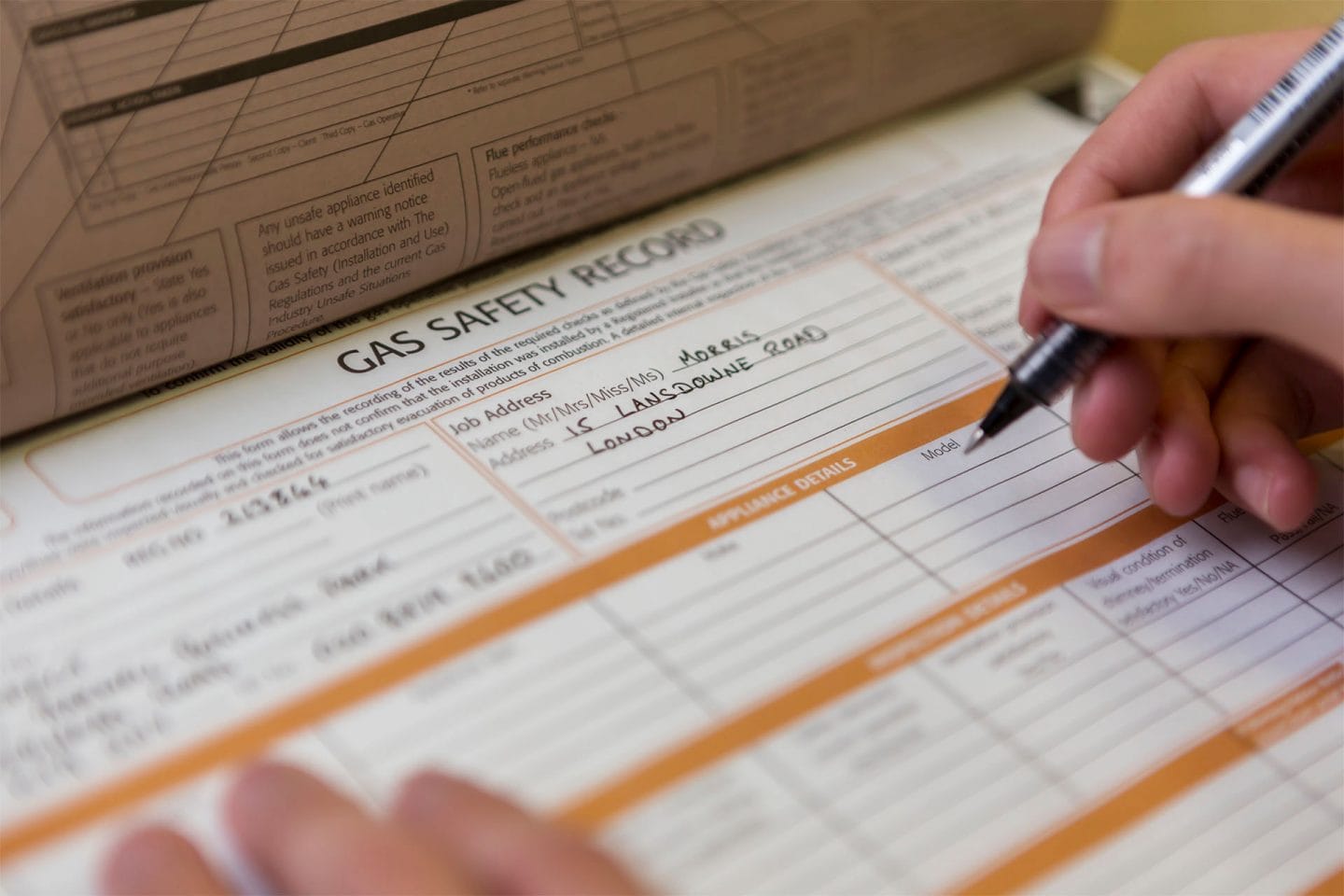Post Content
When you’re looking for a new home, you consider things like the number of bedrooms, wall conditions, and location. Similarly, if you’re renting out a property, it’s your responsibility to ensure that it’s safe for tenants.
For homeowners, landlords, and tenants, a key safety document you’ll often hear about is the gas safety certificate. But what exactly is a gas safety certificate, and do homeowners need to have one? Let’s explore this important topic.
What is a Gas Safety Certificate?
A gas safety certificate is a document that confirms the safe operation of gas appliances, flues, and fittings in your home. It’s essential for many people under the Gas Safety (Installation and Use) Regulations 1998, as it verifies that all gas fixtures are in good working order and safe to use.
The gas safety certificate used to be known as a CP12 or Corgi Proforma 12, named after the former official registration body, Corgi. You can obtain a gas safety certificate after a thorough gas safety inspection or even after routine servicing. These checks should be carried out by engineers who are registered with the Gas Safety Register.
Gas safety certificates are valid for 12 months. However, landlords often keep them for up to two years to maintain a record of their gas safety compliance. It’s also possible to get a new certificate after 10 months, even if the current one hasn’t expired yet.
Who Needs a Gas Safety Certificate?
While not everyone is legally required to have a gas safety certificate, it’s a good idea for anyone living in a home with gas appliances to get one. These certificates are crucial because they confirm that your gas appliances are safe to use. We recommend getting a safety check and obtaining a gas safety certificate periodically to ensure everything is in working order.
Do homeowners need a Gas Safety Certificate?
By homeowners, we’re referring to people who own and live in their property. This includes those who might be renting out parts of their home, such as a room. Homeowners can hire gas engineers to perform a safety check and, during this process, obtain a gas safety certificate.
Having this certificate can reassure a homeowner about the safety and functionality of their gas appliances and fittings. It can also help spot any gas and heating issues early, potentially saving money and preventing accidents.
While a gas safety certificate is incredibly useful and important, homeowners aren’t legally required to have one. They can choose to get one for their peace of mind, but it isn’t mandatory.
Do landlords need a Gas Safety Certificate?
Landlords need to pay attention when it comes to gas safety certificates. They are legally required to obtain these certificates annually to ensure that the properties they rent out are safe from gas or heating-related hazards. Failing to do so can result in hefty fines and legal action.
The gas safety check must cover all gas appliances provided by the landlord on the property. If a tenant brings their gas appliance, the landlord isn’t responsible for that specific item, but they are still accountable for the flues connected to it.
A Gas Safety registered engineer will inspect all the gas and heating appliances, and then issue a gas safety certificate, also known as a gas safety record. This document will list each appliance checked, the engineer’s details, the date of the check, the landlord’s information, any appliances that need fixing, and the results of the inspection.
After receiving a gas safety certificate, the landlord must legally provide a copy of this gas safety record to each tenant. They must do this within 28 days of the tenant moving in or within 28 days after the gas safety check has been conducted.
How to Obtain a Gas Safety Certificate?
To obtain a gas safety certificate, you need to hire a Gas Safety registered engineer to inspect your home. The engineer will conduct various tests to ensure that all gas appliances are secure, comply with safety standards, and operate efficiently.
During the inspection, the engineer will check the appliances for leaks, ensure they meet current safety regulations, verify adequate ventilation, examine the burner and gas pressures, check the flues to ensure harmful gases are properly vented, and make sure all safety devices are functioning correctly.
The cost of these gas safety checks can vary depending on factors like the company you choose, the size of your house, and other considerations.
Conclusion
Now that you understand what a gas safety certificate is and who requires one, you can take steps to ensure your property is safe, whether you’re a landlord or a homeowner, by obtaining one promptly. It’s always better to be safe than sorry, so it’s wise to have a reputable gas engineer conduct the safety check and provide you with a gas safety record for both legal and safety reasons.
At Landlord Safety Certificate, we boast a trusted team of gas and heating engineers in central London who are registered on the Gas Safety Register. You can be confident that your gas safety tasks are handled by the best in the business. If you need a gas safety certificate for your home, visit our website today to schedule a safety check.


